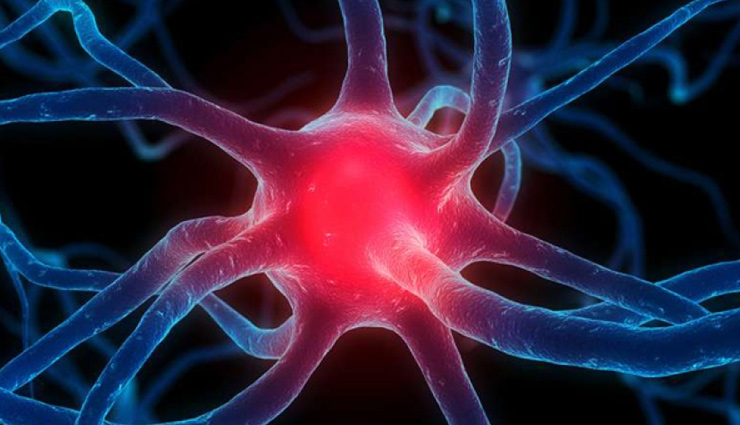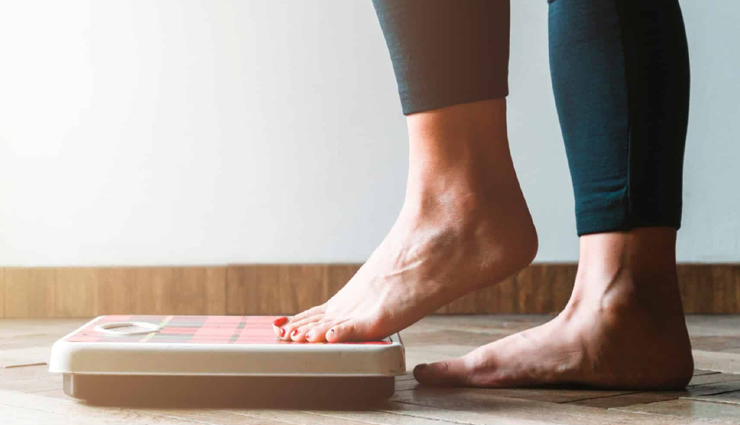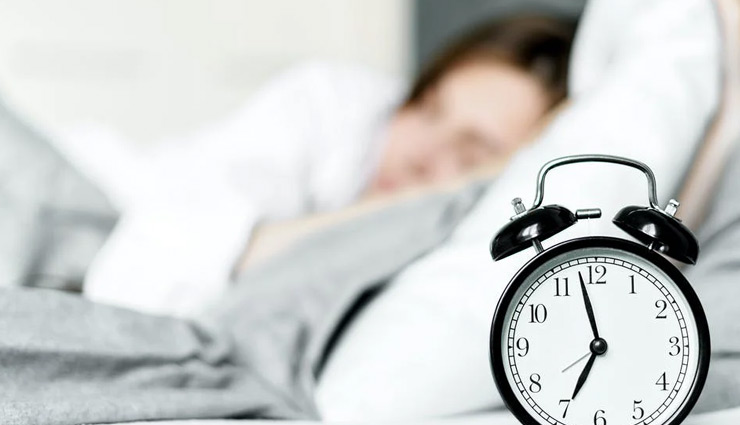- Home›
- Healthy Living›
- Here’s How Much Sleep You Need According To Your Age
Here’s How Much Sleep You Need According To Your Age
By: Priyanka Maheshwari Wed, 11 Sept 2024 10:27:21

Sleep is an essential part of maintaining our overall health and well-being. Getting the right amount of sleep is crucial for proper cognitive function, emotional regulation, and physical recovery. However, the amount of sleep we need varies significantly depending on our age. Here's a breakdown of how much sleep you need at different stages of life, and why it's important to prioritize rest.

Newborns (0-3 months)
Newborns require the most sleep of any age group. They typically need between 14 to 17 hours of sleep per day. This sleep is essential for brain development, growth, and the overall health of the infant. During this stage, sleep patterns are irregular, with babies waking frequently for feeding and comfort.

Infants (4-11 months)
As babies grow, their sleep needs begin to consolidate. Infants between 4 and 11 months need around 12 to 15 hours of sleep per day. Most infants will start sleeping for longer stretches at night, though naps during the day are still essential for their development.

Toddlers (1-2 years)
Toddlers generally need 11 to 14 hours of sleep each day. This includes nighttime sleep and 1-2 naps during the day. Adequate sleep is crucial at this stage for physical growth and cognitive development. Toddlers who don’t get enough sleep may become irritable, have difficulty concentrating, and experience delays in development.

Preschoolers (3-5 years)
Children aged 3 to 5 years typically need 10 to 13 hours of sleep per day. As they grow, most preschoolers transition from two naps to one or stop napping altogether. A consistent bedtime routine becomes especially important to ensure they get enough rest. Lack of sleep at this age can affect behavior, learning, and mood regulation.

School-Aged Children (6-13 years)
School-aged children require between 9 to 11 hours of sleep each night. As they start attending school, the demands on their time increase, but sleep remains just as important for their physical health, memory retention, and ability to focus during the day. Inadequate sleep during these years can negatively impact academic performance and emotional well-being.

Teenagers (14-17 years)
Teenagers are known for their late-night habits, but they still need between 8 to 10 hours of sleep per night. However, hormonal changes and social factors often make it difficult for teens to get enough sleep. Sleep deprivation in teenagers can lead to issues with concentration, mood swings, and even an increased risk of mental health disorders such as anxiety and depression.

Young Adults (18-25 years)
For young adults, the ideal sleep range is between 7 to 9 hours per night. However, with busy schedules and social commitments, many young adults fall short of this recommendation. Not getting enough sleep can lead to cognitive impairments, reduced productivity, and an increased risk of accidents and injuries.

Adults (26-64 years)
Adults should aim for 7 to 9 hours of sleep each night. During this phase of life, consistent sleep is vital for maintaining physical and mental health. Adults who sleep less than 7 hours a night may experience a decline in cognitive function, weakened immune systems, and a higher risk of chronic conditions such as obesity, diabetes, and heart disease.

Older Adults (65+ years)
As we age, our sleep patterns tend to change. Older adults generally need 7 to 8 hours of sleep per night, though many find it more difficult to stay asleep for long periods. Sleep is still crucial for maintaining physical health, mental sharpness, and emotional balance. Older adults may benefit from strategies like maintaining a consistent sleep schedule, creating a restful sleep environment, and addressing any sleep disorders, such as sleep apnea or insomnia.
Why Getting Enough Sleep Matters
No matter your age, getting enough sleep is critical for your overall health. Sleep is the time when the body repairs itself, balances hormones, and consolidates memories. Without adequate rest, you’re more likely to experience problems with your mood, cognitive function, and physical health.

Benefits of Getting Enough Sleep:

# Improved Memory and Learning
Sleep plays a critical role in memory consolidation, a process where the brain converts short-term memories into long-term ones. During sleep, particularly during the REM (Rapid Eye Movement) stage, your brain processes and organizes information gathered throughout the day. This enhances your ability to retain new knowledge, improves problem-solving skills, and helps you perform better on tasks that require concentration and focus. Without enough sleep, your ability to learn and remember information is significantly impaired.
# Emotional Well-Being
Adequate sleep is essential for maintaining emotional balance. Sleep helps regulate the body’s stress hormones and keeps your mood in check. A full night’s rest allows you to wake up feeling refreshed, more positive, and better equipped to handle stress. On the other hand, sleep deprivation can lead to irritability, mood swings, and an increased risk of developing mental health issues such as anxiety and depression. Prioritizing sleep contributes to greater emotional resilience and a more stable mental state.

# Physical Recovery and Immune Function
Your body uses sleep as a time to repair and regenerate cells, tissues, and muscles. During the deep stages of sleep, growth hormone is released, which is essential for tissue repair, muscle recovery, and overall physical growth. Sleep also supports a healthy immune system, helping the body fight off infections and illnesses. Lack of sleep can weaken the immune system, making you more susceptible to colds, flu, and other health problems.
# Enhanced Focus and Productivity
When you’re well-rested, you’re more alert, focused, and productive throughout the day. Sleep deprivation impairs cognitive functions such as attention, concentration, and decision-making, making it harder to complete tasks efficiently. By ensuring you get enough sleep, you enhance your ability to think clearly, solve problems, and make better decisions. Whether at work, school, or home, getting adequate sleep will improve your overall performance and productivity.

# Lower Risk of Chronic Diseases
Chronic sleep deprivation has been linked to a range of serious health conditions, including heart disease, diabetes, stroke, and obesity. When you don’t get enough sleep, your body’s ability to regulate blood pressure, sugar levels, and appetite is compromised. Over time, this increases your risk of developing cardiovascular diseases, metabolic disorders, and weight gain. By getting sufficient rest, you can reduce the likelihood of these chronic health issues and promote long-term wellness.
# Better Physical Health and Longevity
Studies have shown that people who consistently get enough sleep have a lower risk of premature death. Sleep helps regulate vital bodily functions, from heart rate to hormone levels, and plays a key role in maintaining physical health. Individuals who get regular, quality sleep tend to have a healthier heart, lower levels of inflammation, and better metabolic functioning. Ensuring that you’re getting enough rest can improve your quality of life and contribute to a longer, healthier lifespan.

# Increased Creativity and Innovation
Sleep, especially during REM, is known to stimulate the brain’s creative centers. When you sleep, your mind makes connections between different pieces of information, fostering creative thinking and innovation. People who get enough sleep are more likely to come up with new ideas and creative solutions to problems. Whether you’re working on a project, solving complex problems, or trying to innovate in your field, adequate sleep can enhance your creativity and help you think outside the box.
# Weight Management
Getting enough sleep plays a crucial role in maintaining a healthy weight. Sleep deprivation affects the balance of hormones that regulate hunger and appetite. When you’re sleep-deprived, your body produces more ghrelin (a hormone that increases appetite) and less leptin (a hormone that suppresses hunger). This can lead to overeating and weight gain over time. Additionally, when you’re tired, you’re more likely to reach for unhealthy, high-calorie foods for quick energy boosts, which can further contribute to weight gain.

# Improved Athletic Performance
For athletes and fitness enthusiasts, sleep is a vital component of physical performance. During sleep, the body repairs muscles, replenishes energy stores, and releases growth hormones that aid in recovery. Athletes who prioritize sleep often experience better endurance, quicker reaction times, and improved motor skills. Whether you’re training for a marathon or simply trying to stay fit, getting enough rest can enhance your physical capabilities and reduce the risk of injury.
# Better Relationships and Social Interactions
Lack of sleep can affect your ability to interact with others in a positive and constructive manner. When you’re well-rested, you’re more patient, empathetic, and better able to handle conflicts. Sleep improves your emotional intelligence, making it easier to pick up on social cues and respond appropriately in conversations. Whether in your personal relationships or professional life, getting enough sleep can help you maintain healthy, fulfilling interactions with others.
Tips for Better Sleep
Regardless of age, there are some universal tips that can help improve the quality and quantity of your sleep:

# Stick to a Consistent Sleep Schedule
One of the most effective ways to improve sleep quality is to maintain a regular sleep routine. Going to bed and waking up at the same time every day—regardless of whether it’s a weekday or weekend—helps regulate your body’s internal clock. A consistent schedule makes it easier to fall asleep and wake up naturally, reducing feelings of grogginess in the morning.
# Create a Relaxing Bedtime Routine
Developing a relaxing pre-sleep routine can help signal to your body that it’s time to wind down. Incorporate calming activities into your routine, such as reading, taking a warm bath, practicing gentle yoga, or meditating. Avoid stimulating activities like checking work emails or watching intense TV shows, as these can make it harder to relax and fall asleep.

# Limit Exposure to Screens Before Bed
The blue light emitted by screens—such as smartphones, computers, and televisions—can interfere with the production of melatonin, a hormone that helps regulate sleep. Try to avoid using electronic devices at least 30 minutes to an hour before bedtime. If you must use a screen, consider using a blue light filter or switching your devices to "night mode."
# Make Your Sleep Environment Comfortable
Your sleep environment plays a crucial role in how well you rest. Ensure your bedroom is cool, quiet, and dark to promote better sleep. You can use blackout curtains to block out light, earplugs to reduce noise, and a fan or white noise machine to create a soothing atmosphere. Investing in a comfortable mattress and supportive pillows can also significantly improve the quality of your sleep.

# Watch What You Eat and Drink
What you consume before bedtime can impact your sleep quality. Avoid heavy meals, caffeine, and alcohol close to bedtime, as they can disrupt your ability to fall and stay asleep. Caffeine, in particular, can stay in your system for hours, so it’s best to limit your intake after the early afternoon. If you’re hungry before bed, opt for a light snack that contains sleep-promoting nutrients, such as a small serving of nuts or a banana.
# Get Regular Physical Activity
Exercise has been shown to improve sleep quality and help people fall asleep faster. Engaging in moderate physical activity, such as walking, jogging, or swimming, during the day can promote better sleep at night. However, try to avoid intense workouts close to bedtime, as they may leave you feeling too energized to fall asleep.

# Manage Stress and Relax Your Mind
Stress and anxiety are common culprits behind sleep disturbances. Practicing relaxation techniques, such as deep breathing exercises, meditation, or progressive muscle relaxation, can help calm your mind before bed. Writing down your thoughts or worries in a journal before sleeping may also help clear your mind and prevent you from overthinking at night.
# Limit Naps During the Day
While short naps can be refreshing, long or irregular naps during the day can interfere with nighttime sleep. If you feel the need to nap, try to limit it to 20-30 minutes in the early afternoon. Napping later in the day can make it harder to fall asleep at night and disrupt your sleep schedule.

# Expose Yourself to Natural Light During the Day
Exposure to natural sunlight during the day, especially in the morning, helps regulate your body’s circadian rhythm, which controls your sleep-wake cycle. Try to spend time outdoors or in natural light during the day, as it can improve your alertness and mood. In the evening, dimming the lights can help your body recognize that it’s time to wind down for sleep.
# Consider Professional Help if Needed
If you’ve tried various sleep tips and are still struggling with sleep issues, it may be time to seek professional advice. Sleep disorders, such as insomnia or sleep apnea, may require specialized treatment. A doctor or sleep specialist can help diagnose and treat underlying conditions, ensuring you get the rest you need for optimal health.
Related Stories:
# 5 Habits That Can Help You Improve Heart Health
# 12 Proven Health Benefits of Garlic for Health
# 8 Least Known Health Benefits of Bitter Gourd
# 7 Practices To Help to Reduce The Risk of Silent Heart Attack





